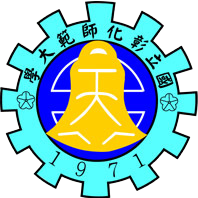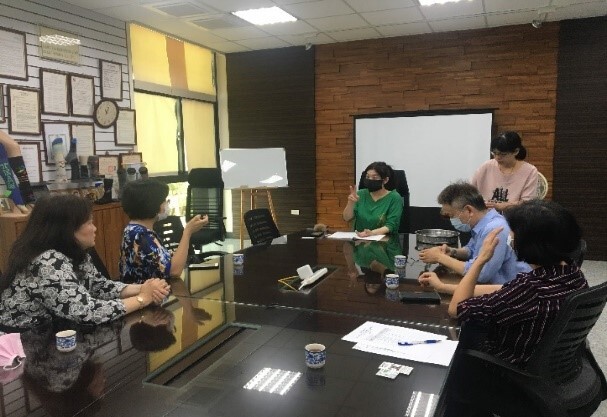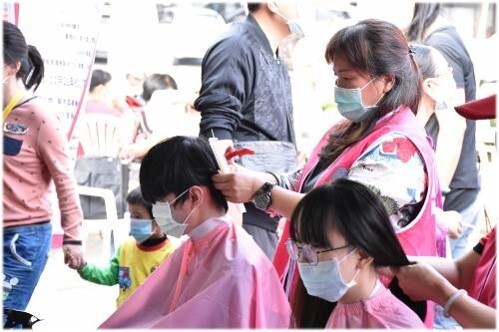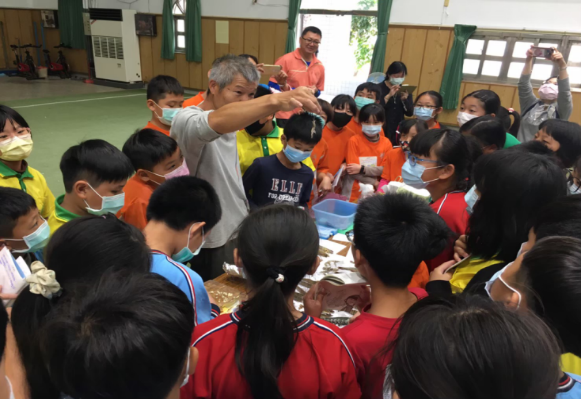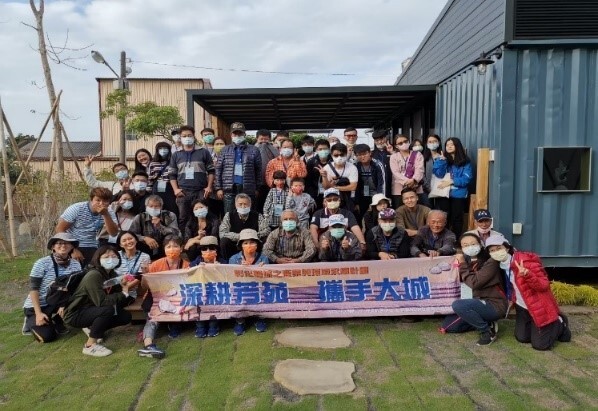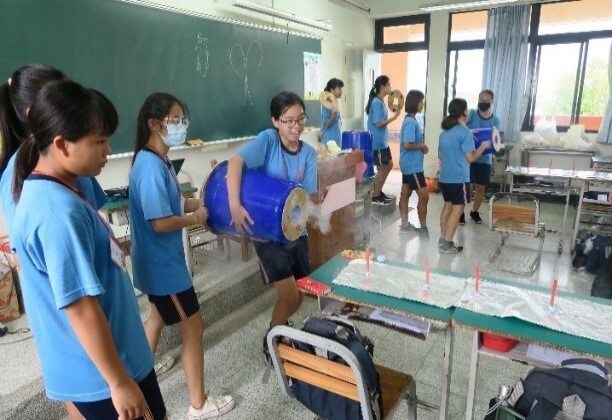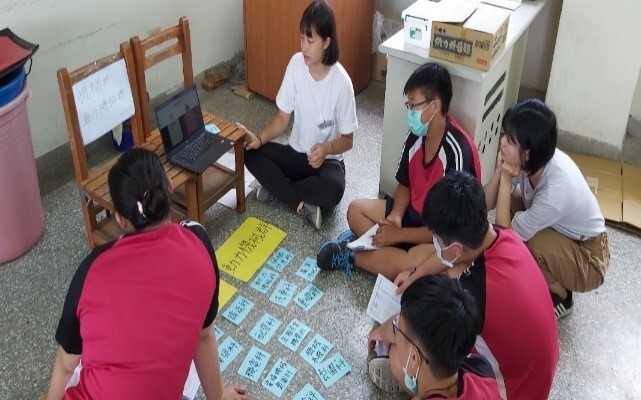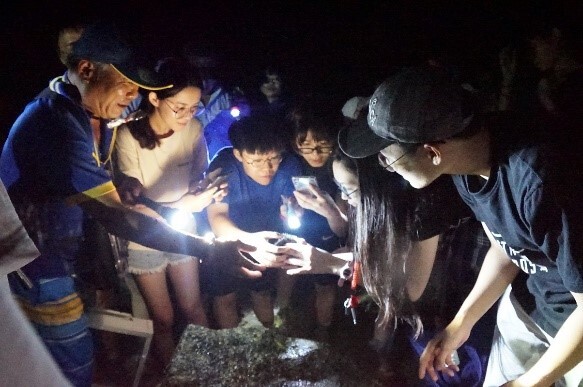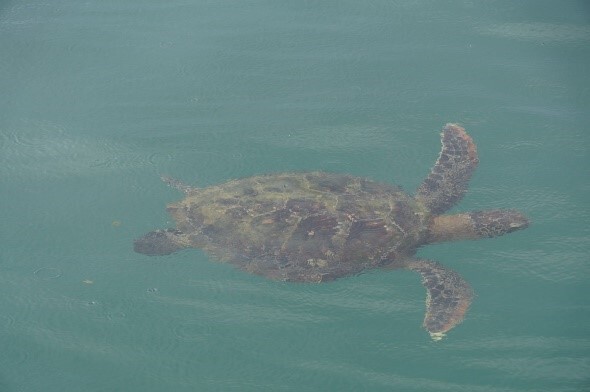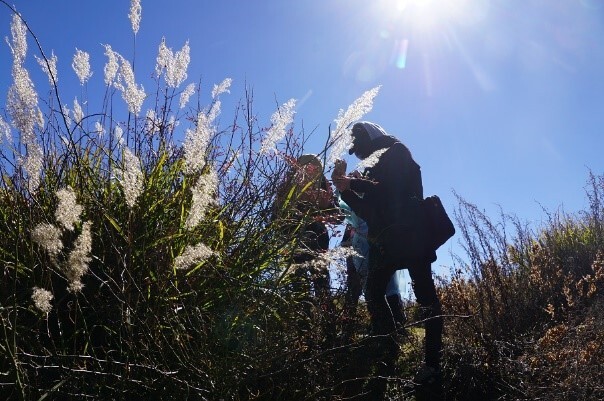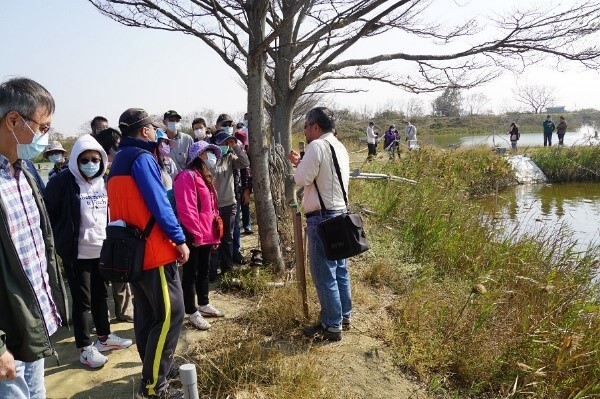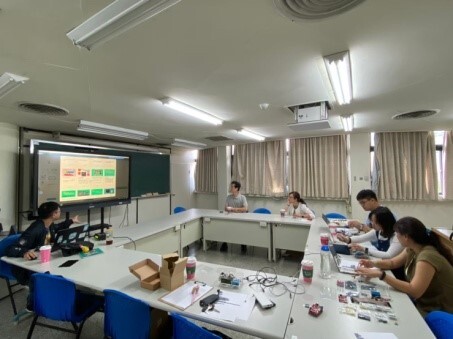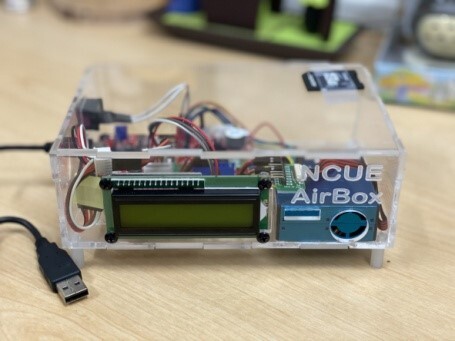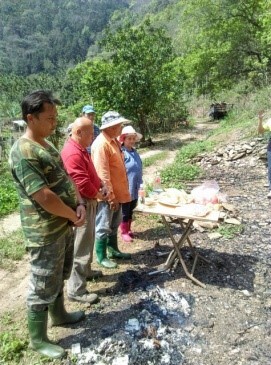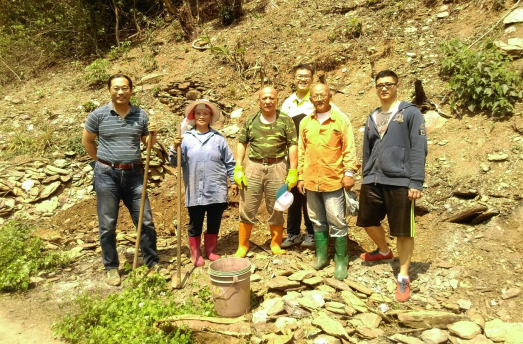SDG17.4.3 Education for SDGs in the wider community-2021
1. Regarding the lifelong learning of sustainable development, NCUE holds educational activities and courses every year, allowing our teachers and students, the community, and the public to participate according to their further education and study needs. We offered the following lifelong learning courses in 2020:
1.1 We offered multi-language learning courses, including English, Japanese, Korean, French, Vietnamese, and German, to allow residents to develop their second-language skills according to their interest in learning. In 2020, 19 classes were offered, with a course duration of 1,849 hours, and 582 people completed their studies.
1.2 To provide opportunities for community elders to continue their studies, the Changhua County Elderly University was established by NCUE in 1995, encouraging people over 55 years to return to school. In 2020, there were two school terms, each of which lasted 16 weeks. A total of 19 classes were held and 609 people completed courses.
1.3 Every year, in line with the Ministry of Education’s policy and further study needs of secondary school teachers, teachers’ second specialty and empowerment classes are set up to help in-service teachers improve their professional teaching skills. In 2020, 26 courses were offered, with 1,080 training hours and 792 participants.
1.4 To assist in-service personnel in continuing their studies and improving their professional skills in the workplace, NCUE plans vocational training courses according to the needs of residents and local industries. In 2020, 87 classes were set up, with more than 2,588 training hours, helping 2,178 trainees improve their knowledge and skills.
1.5 We offered various types of education promotion courses covering business operations, information technology, enterprise management, marketing, and handicraft creation to allow people in the community to continue self-development according to their learning interests. In 2020, 65 classes were held, attracting 1,618 people to sign up.
2. In addition, NCUE cooperates with outside bodies to implement activities related to sustainable development as follows:
2.1 The university’s social responsibility practice programme called ‘Shetou Sock Production: Innovation, Start-up, and Revitalization’ provides exclusive e-commerce services for three cooperative sock manufacturers, namely, Light Tai Industries Corp., Dejan Textile Ltd., Co., and LOHO Hosiery Museum. It has set up an exclusive e-commerce team to provide consultation and guidance as well as assist in commodity shooting, copy editing, social media management, and other services, with about 192 consultation service hours. We also assist three enterprises, namely, Six Companions Fabric Industry Co., Ltd., Cyy Sporting Goods Co., Ltd., and Cheng Fu Tang Food Factory, in jointly applying for the ‘Healthy Happy New Socks Capital - Shetou Entrepreneurship and Transformation Plan’, with about 48 consultation service hours. In addition, we have held camp activities for primary, secondary, and vocational high schools in Taiwan and donated socks, carried out DIY, conducted health examinations, and offered free haircuts. This aim of these activities is to promote local public welfare, care for vulnerable groups, and benefit the public to show the university’s social responsibility, as shown in Figures 1 and 2. Please refer to Appendix 17.4.3A and the information reported on the website for supporting information.
https://www.ncue.edu.tw/p/406-1000-3694,r93.php?Lang=zh-tw
|
E-commerce team consulting service |
Free haircuts at the Shetou Sock Production and Guava Festival |
2.2 The university’s social responsibility practice programme called ‘Deeply Cultivate Flower Gardens, Join Hands with Great Cities: Sustainable Industry and Environment in Changhua Twin Cities’ has combined interdisciplinary experts and scholars from NCUE and other schools to set up a caring team for sustainable industry management. This team promotes a sustainable environment through the clam breeding industry, clean beach and wetland conservation, food safety, green energy, and community reconstruction. We educate food farmers and train local teachers on the environment as well as hold environmental courses and workshops related to solar photovoltaic and green energy. In 2020, we held 12 preparatory meetings of local experts with 214 participants and assisted in organizing the Hanbao Sunset Concert with 80 participants. The magistrate of Changhua County, county and city councillors, legislators, and supervisors all attended the event to promote local characteristics, transformation, and entrepreneurship, as shown in Figures 3 and 4. Please refer to Appendix 17.4.3B and the information reported on the website for supporting information. https://reurl.cc/9rNeXY
|
Changhua Fisheries Association: Youth Skills Development Workshop |
Sustainable Coastal Ecological Resources Workshop |
2.3 The university’s social responsibility practice programme called ‘Baisha × Common Good Education: Programme of Deeply Cultivating Twelve-year National Education in Remote Rural Areas’ invited seven junior high school and primary school teachers from four counties and cities to NCUE to share their difficulties in rural areas. Students discussed their experience and gave practical guidance to help them develop courses with tailored characteristics suitable for each school. Students’ career planning was carried out to help fresh graduates confused about their future identify their goals and directions. Students explored their professional interests and completed the Personal Future Plan using evaluation tools related to career exploration and individualized interview counselling. Altogether, 85 disadvantaged students from five schools in rural areas were helped, as shown in Figures 5 and 6. Please refer to Appendix 17.4.3C and the information reported on the website for supporting information. https://reurl.cc/yE8j7l
|
Bang! Watch my magic. All the candles went out/Natural science interest experience of students in Changhua County Ta-cheng Junior High School |
What group am I suitable for? Discover what I don’t know about myself/Introduction of job types to junior high school students in Yunlin County Yiwu Junior High School. |
2.4 Professors Yi-chih Chien and Chung-yi Lin jointly carried out teacher study activities for the conservation and sustainable utilization of ocean and marine resources as well as conducted marine ecological inquiry courses for pre-service, primary, and secondary school teachers in Lequeo Pequeno. They also provided teacher study workshops to explain the importance of sustainable development through outdoor experience teaching. The topics included ecological awareness and the importance of intertidal zones, conservation of green sea turtles, box-net culture, and other marine resources and sustainable utilization issues. Participants then understood the limitations and vulnerability of marine resources as well as the importance of the conservation of green sea turtles and other marine life, as shown in Figures 7 and 8. Please refer to Appendix 17.4.3D for supporting information.
|
|
|
|
Under the guidance of the ecological counsellor, an ecological awareness activity was carried out in an intertidal zone at night |
Ecological observation experience in the conservation of green sea turtles, exploring marine resources and sustainable issues |
In addition, teachers’ study activities for the sustainable use of ecosystems were conducted. Primary and secondary school teachers as well as pre-service teachers went to Hehuan Mountain Ecological Park and Budai Wetland to attend biodiversity inquiry courses, respectively. These explained the importance of biodiversity and the sustainable use of ecosystems through outdoor experience teaching. The course themes of Hehuan Mountain Ecological Park included experiencing the ecological construction of the Beigang Creek Nuomi Bridge, ecological observation of leaf bats, understanding of alpine plants and ecological outdoor teaching, and other issues related to the sustainable use of ecosystems and management of forests. The course themes of Budai Wetland included experiencing the wetland ecosystem and mangrove, wetland benthos and water quality inspection, ecological non-toxic aquaculture outdoor visit teaching, and other issues related to the sustainable use of ecosystems and management of forests. Participants learned the importance of protecting, maintaining, and promoting the sustainable use of territorial ecosystems, managing forests sustainably, fighting desertification, stopping and reversing land degradation, and curbing the loss of biodiversity through inquiry and outdoor experience activities, as shown in Figures 9 and 10. Please refer to Appendix 17.4.3D for supporting information.
|
|
|
|
Holding biodiversity-related courses at Hehuan Mountain Ecological Park to explore the sustainable use of ecosystems and management of forests |
Holding outdoor visit teaching on eco-level non-toxic aquaculture at Budai Wetland Ecological Park to explore issues related to the sustainable use and management of ecosystems |
2.5 Professor Mei-chun Wen implemented the ‘Everyday Science for All - Cross-domain Mathematical Inquiry’ programme, providing study workshops for primary and secondary school teachers. These workshops explained the co-preparation of lessons as well as relevant courses for the science camps of rural primary and secondary schools, thus influencing local residents through students and teachers. Related course themes included understanding common mosquitoes and diseases transmitted by vector mosquitoes, understanding coronavirus and COVID-19, and causes of air pollution (smog) and prevention methods, which are closely related to public health. Participating students could understand the course content through inquiry and practice activities, and then improve their inquiry ability; participating teachers could increase their knowledge of the relevant course concepts and help popularize them, as shown in Figures 11 and 12. Please refer to Appendix 17.4.3D for supporting information.
|
Design and practice on a course on haze |
An air box used on a course on haze |
2.6 Associate Professor Erh-tsung Chin entered the Tunglong Tribe (a traditional tribe of the Bunun ethnic group 100 years ago with 30 stone houses) on the banks of the Chou-Shui River in Xinyi, Nantou to construct a stone house using traditional construction methods. He also devoted himself to the ecological protection and sustainable use of traditional tribal lands, as shown in Figure 13. Please refer to Appendix 17.4.3E for supporting information.
|
|
|
|
Construction and land preparation of the stone house |
|
- Annex 17.4.3A- Achievements of the programme ‘Shetou Sock Production: Innovation, Start-up, and Revitalization’
- Annex 17.4.3B- Achievements of the programme ‘Deeply Cultivate Flower Gardens, Join Hands with Great Cities: Sustainable Industry and Environment in Changhua Twin Cities’
- Annex 17.4.3C- Achievements of the programme ‘Baisha × Common Good Education: Programme of Deeply Cultivating Twelve-year National Education in Remote Rural Areas’
- Annex 17.4.3D- Closing report of the science education programme
- Annex 17.4.3E- Indigenous science education programme
